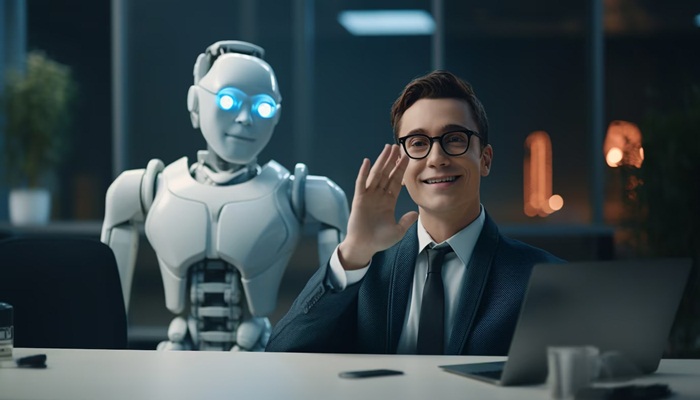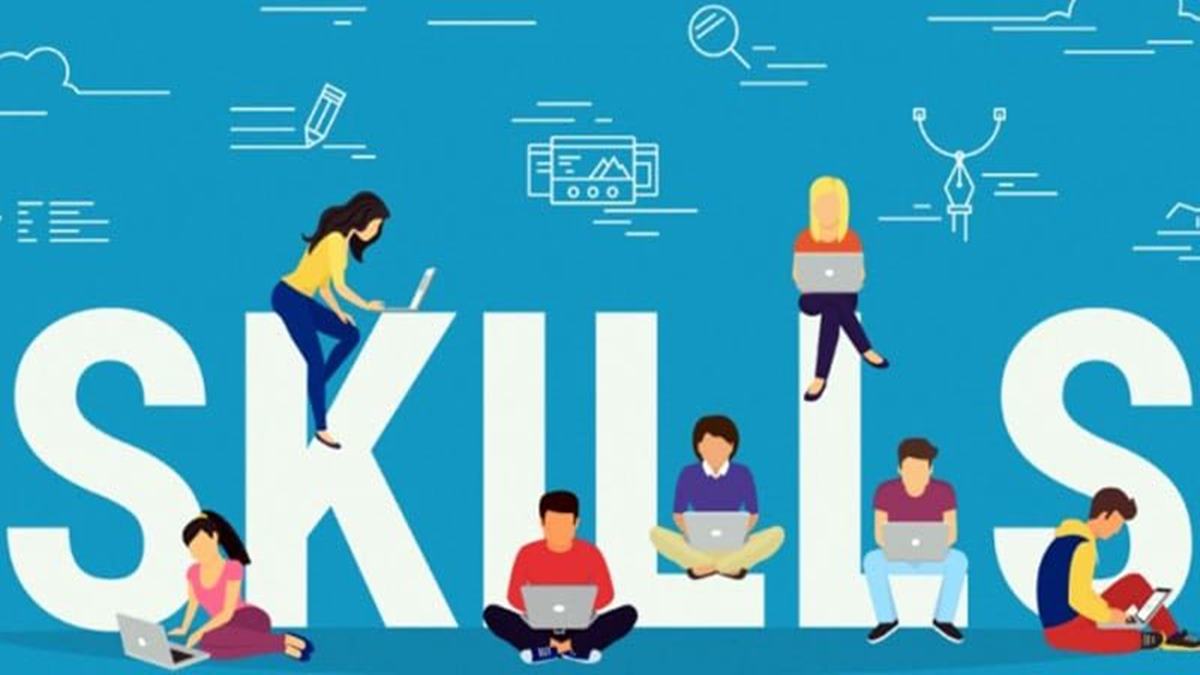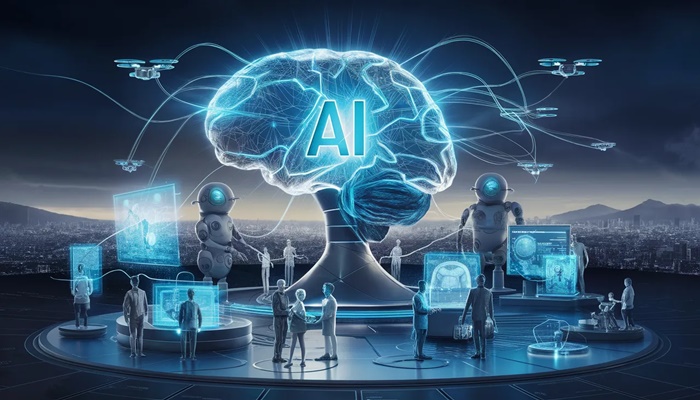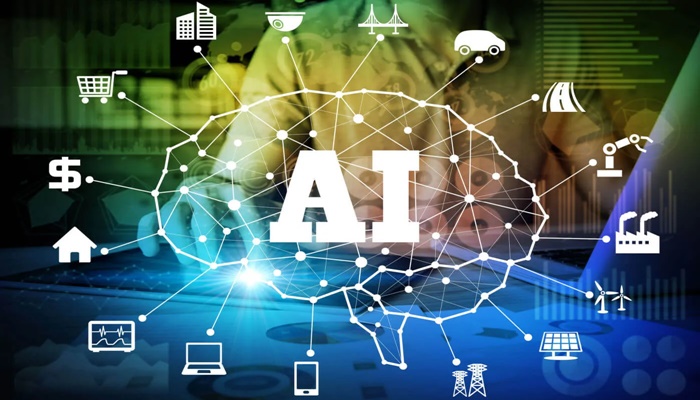In some of the conferences and events that I’ve been to within the past year, people are painting vibrant pictures of a world in which humans and AI entities work well together, shoulder to shoulder, relying on each other, asking each other questions, and co-navigating a business space or workspace.
With that said, we’re exploring the differences between us and our digital contemporaries, trying to figure out how to share the load – what does the human do, and what does the AI do?
This is, at its core, a philosophical question, and not one that’s easily answered with a simple response.
To get to the heart of it, we should start by making a clear-eyed assessment of AI capabilities.
I came across this from the BBC, which starts to delineate what AI is capable of (note British spelling intact).
“AI allows computers to learn and solve problems in ways that can seem human. Computers cannot think, empathise or reason. However, scientists have developed systems that can perform tasks which usually require human intelligence, trying to replicate how people acquire and use knowledge. AI programmes can process large amounts of data, identify patterns and follow detailed instructions about what to do with that information.”
This starts us on the journey of thinking about how an AI robot could be logical, reasonable, and efficient, but maybe not as well-versed in sensory concepts – well in fact, definitely not as well-versed in sensory concepts – as a human.
Interestingly enough, one of the best descriptions of this I could find was from a well-credentialed Chinese-American, Qihui Xu, who writes about an AI understanding (or not understanding, as the case may be) a flower.
“A large language model can’t smell a rose, touch the petals of a daisy or walk through a field of wildflowers,” Xu writes. “Without those sensory and motor experiences, it can’t truly represent what a flower is in all its richness. The same is true of some other human concepts. If AI construes the world in fundamentally different ways from humans, it could affect how it interacts with us.”
Xu, I think, hits the nail on the head by pinpointing the human experience as valuable to business or outputs. It’s our sense of sight combined with our sense of smell, touch, taste, and hearing that give us the input data and capability, which makes us unique and valuable.
In other words, AI might be coming up with all kinds of human-like responses to questions, and those can be staggering to a human mind that’s not used to being competed with. But we still have this very important edge when it comes to sensory experience.
Or to put it yet another way, AI is working with a limited set of data to try to bring vibrant responses. It can search the pantheon of human thought, and simulate some of the experiences we’ve had by crowdsourcing things from the mass consciousness. But again, it can’t smell a rose.
Reimagining Work
Here’s more from a panel conference we had at Imagination in Action this spring, with Jean Olive from John Hancock, Raj Aggarwal, Vinay Gidwaney, CPO of One Digital, and Soundararajan Srinivasan of Microsoft.
I’ll try to lay out a few of the concepts that panelists discussed as things that AI can bring to business.
Procurement and Processing
When it comes to rote productivity, AI could outcompete humans. Olive and other panelists talked about a sharing of a process where the AI comes up with the insight, and the human uses it to build trust with other humans. In other words, the AI is like the engineer, and the human is like the sales person. We can use the old term “DevOps” to talk about making that transition between the two of them more fluid.
Organize My Mess
Srinivasan talked about using AI to organize data.
Suppose, he suggested, that there’s something important in a letter from a CEO, or even something that the CEO scrawled on a napkin somewhere.
How do you get that where it needs to be?
I thought this was extremely interesting in terms of something that you can extrapolate to really understand what AI can do for us.
Suppose you’re in the middle of a messy room. It’s your room, and your room is messy. You might invest time in trying to declutter and arrange items in three-dimensional space. You might spend a lot of time on that, and not even get to where you wanted to be.
On the other hand, you might turn loose an AI entity endowed with robotic features, and over time, it might design a better result than you could have gotten yourself.
It would be using very sophisticated concepts of object placement to group things together and put them where they’re most intuitive.
Presumably, this would be most valuable to people with attention deficit disorder, or other conditions that impair their sense of organization.
The panel also talked about human curation, and you can ignore the digestive references for which moderator Aaron Pressman suggested we need Pepto-Bismol.
In any case, one of the big use cases of AI could be organizing data and dealing with things that are not properly labeled or easily accessible.
More Quotes from the Panel:
“One thing that my team was involved very early on is in our SQL product … we’ve replaced the need for people to be SQL experts. That’s probably a big industry … teaching people how to use SQL. Now you can do that with natural language.” – Soundararajan Srinivasan
“You can take a lot of people that do repetitive tasks in your companies, and try to automate that away.” – Aaron Pressman
“I like to tell our people all the time that we’re in the advice-giving business. We sit with small business owners and families, and advise them on their financial wherewithal and how to lower healthcare costs, or increase the value of their investments. Generative AI does a great job of giving advice, and so we knew early on that it was going to be a big factor to our growth and frankly, a competitive differentiator if we embraced it.” – Vinay Gidwaney
“It was a conscious decision to call it a co-pilot. It’s not like a replacement. We are not taking away anybody’s roles or jobs. It is basically (about) enhancing, and how do you augment the capabilities?” – Soundararajan Srinivasan, on Microsoft Copilot as a technology
“We had sales reps that sometimes had (many) different customers, and getting prepared for every one of those meetings was often taking them two to four hours of time. And so what we did is we started to bring together all of the structured and unstructured data together into a narrative that was then delivered to a sales rep at the right time. So for example, we’d see when they have a meeting coming up, and we would deliver a summary via Slack. They could click in and go into Salesforce, and they can see a more detailed view and basically read it as a narrative.” – Vinay Gidwaney
Working Well With AI
So these were some of the actionable ideas coming out of that panel – ideas that have to do with the delineation of task work when humans and computers are colleagues and associates in the work world.
Imagine a human saying to the AI – “you are better at organization than I am. So I’m going to give you the role of looking at everything, putting it together, and placing it where it makes the most sense.”
Then think of the AI saying – “you are better at experiencing your physical world than I am. I’m going to give you all of these results, and let you use them to move through that rich three-dimensional world with all of your senses, and make all of this mess the best it can be.”
Source – https://www.forbes.com/sites/johnwerner/2025/06/30/if-i-share-my-job-with-ai-what-happens/



















